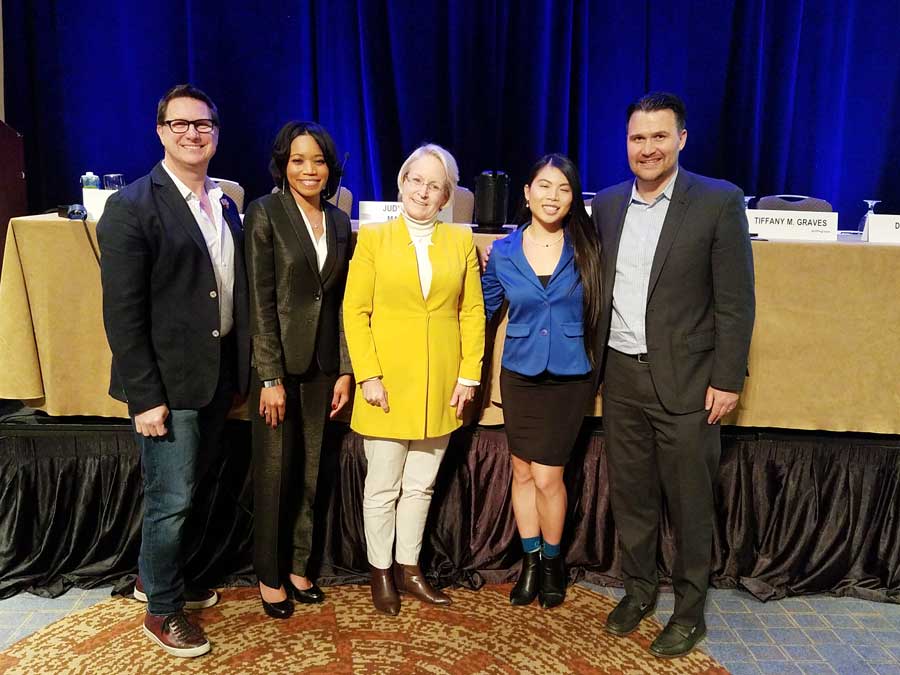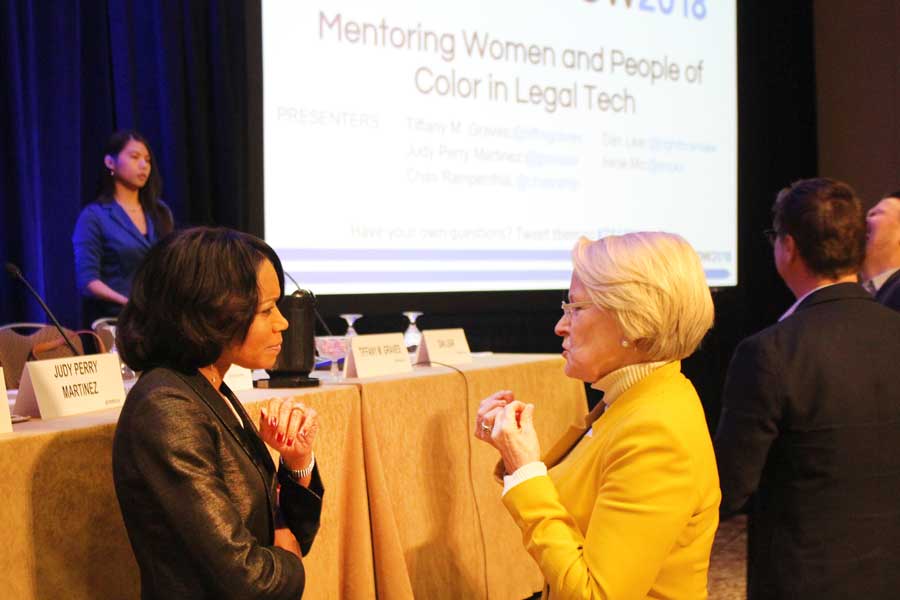
Article by Featured Author
Posted March 2018
Tiffany Graves recently presented on this topic as part of a panel at the ABA TECHSHOW on March 8, 2018 in Chicago. The panel, Mentoring Women and People of Color in Legal Tech, also included Dan Lear (Avvo), Judy Perry Martinez (Simon, Peragine, Smith & Redfearn), Irene Mo (ABA Center for Innovation), and Chas Rampenthal (LegalZoom).
I have been out of law school for eleven years. I met my husband in law school at the University of Virginia School of Law. He is from Jackson, Mississippi, and rather than make him stay in Virginia, my home state, I followed him back to Mississippi after we graduated. Prior to moving to Mississippi, I had only stepped foot in the state once, for my now brother-in-law's wedding.
As much as I loved my husband, I was incredibly nervous about moving to Mississippi. Like everyone who is not from the state, the things I had heard about Mississippi gave me great pause, especially as an African-American woman. I worried that I might not find the support in Mississippi that I had in Virginia — those mentors who cheered me on as I became the first to graduate from a four-year college in my family and, later, the first to graduate from law school. I did not want to enter into an environment where the color of my skin would restrict the opportunities with which I would be presented.
I knew how invaluable mentors and sponsors had been for me before moving to the Magnolia State and I knew that I would have to be very intentional about finding similar supports in my new home.
It has been more than a decade since I moved to Mississippi, and I can happily report that I have found the support I knew I would need to help me navigate professional and personal decisions. I have had the pleasure of working at some of the biggest law firms in the state as well as with legal nonprofit programs dedicated to serving the state's underserved populations. I can point to at least one person — either a mentor or a sponsor — in each career setting who helped pave the way for my entry into a particular position, board or other professional engagement. The guidance I have received from mentors and sponsors throughout my legal career has had an immense impact on where I am today. Mentors and sponsors serve different purposes, but their end goal is the same: to support you in achieving your goals.

Mentors provide guidance and advice, but they do not necessarily act as a coach or advocate like a sponsor. Those wanting career guidance and advice typically seek out mentors and, at times, mentors are assigned to professionals new to a particular industry or organization. In the legal context, for example, most law firms will pair a new associate attorney with a more senior associate or partner to help her navigate law firm practice.
I have sought out mentors and been sought out to be a mentor. It is difficult and, in my opinion, not advisable to ask someone you do not know to be your mentor. Mentorship needs to be about connection, chemistry and trust. I believe the mentorship relationship may be doomed from the beginning if the two people involved lack some level of connection, even if that connection only includes having attended the same college or professional school, being in the same sorority or fraternity, etc.
You will not always know who your sponsors are and, frankly, that is what makes them special, and their advocacy, powerful. Sponsors advocate for you in the workplace when you need to be more visible. They speak for you in situations where your voice may be muted by your inexperience or simply by a lack of awareness of your contributions to the team. Like it or not, your legacy in a company is closely-tied to your perceived success. If you are actively working to build relationships and prove your value-add to an organization, in time, people will notice, and they will begin to advocate for you, and you will reap the rewards of that advocacy.
I have turned to mentors for guidance as I have contemplated career changes, considered accepting positons on boards, and thought about running for office in professional associations. Their advice has been invaluable and, at times, prevented me from making decisions that I would have most certainly regretted. Sponsors — some of whom were revealed, and some of whom were not — have helped me obtain promotions, get elected to statewide positions, and get appointed to boards whose missions closely-aligned with my core values. While I may have been able to achieve some of those things on my own, I will never discount the power of having people who believed in me and, in the case of my sponsors, having people who actively fought for me to advance.

I am currently mentoring two young attorneys and one law student. They approached me about developing a mentorship relationship and I agreed to do whatever I could to support them in their professional and personal growth. I have also quietly and not-so-quietly sponsored colleagues in the past who were, fortunately, able to benefit from my advocacy. I will continue to mentor and sponsor to "pay it forward" and because I believe women, in particular, need other women of influence as their champions. This is especially true for women of color who do not always have familial and other connections to people who can advocate for them.
Mentors and sponsors can be essential to helping you find your voice, believe in your potential, and open the doors that might just lead to your next big career move.
Special thanks to the ABA Law Student Division, who first published Tiffany's article here.